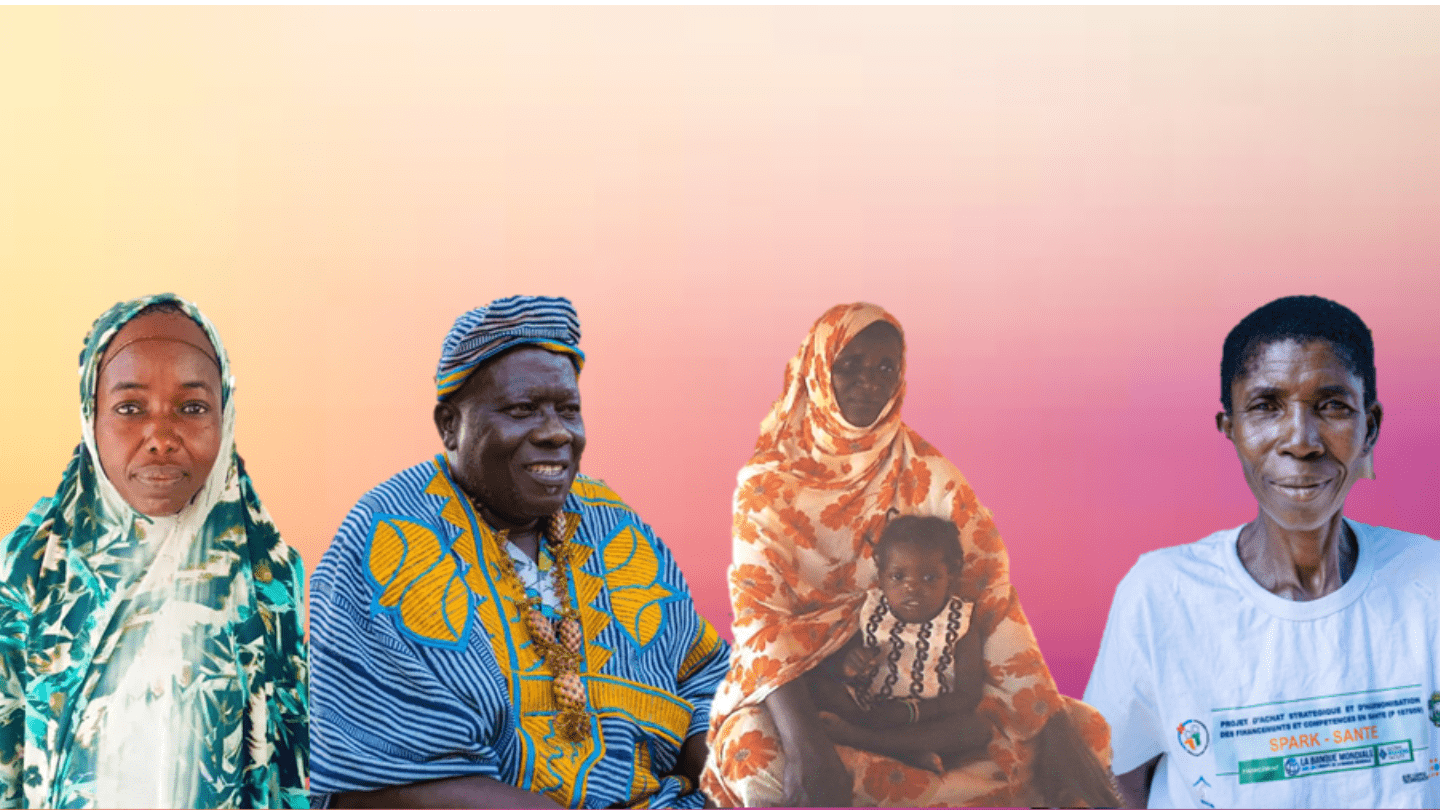Across West and Central Africa, the voices of women living with and recovering from obstetric fistula reveal stories of pain, resilience, and transformation. Often hidden from public view, this debilitating childbirth injury—caused by prolonged, obstructed labor—leaves women incontinent, socially excluded, and emotionally scarred. Yet through support, medical care, and reintegration programmes made possible by UNFPA and its partners, many women are reclaiming their health, dignity, and futures.
In the villages, I introduce myself as a man of goodwill who was marked by fistula and who acts of his own free will to help women affected by the disease.
– Ferdinand Djouhony, Village Chief of Tieny, Côte d’Ivoire
His words reflect the power of community leadership in breaking the silence and stigma surrounding obstetric fistula. When men engage as allies, lasting change becomes possible.
I could no longer show myself in public—people avoided me, and I suffered deeply.– Kadiatou Bah, survivor, Guinea
After all she has been through, she found the strength to start over. Her business gives her autonomy and joy—and seeing her daughters smile again is her greatest victory.
After giving birth at home, I lived with obstetric fistula for 23 years. But my husband stayed by my side, and I even had another child before I finally found healing.
_ Kambiré Hini, survivor Côte d’Ivoire
I experienced shame, loneliness, and pain. But today, I stand tall. Thanks to solidarity, I turned my suffering into strength and regained my dignity.
– Coumba Ba, survivor, Mauritania
After my first pregnancy ended in a miscarriage, I developed obstetric fistula. I’ve had three surgeries, and now I am doing better.”
– AH, 20, Bourem, Mali
I lived with fistula for seven years after a difficult childbirth in a village without a functioning health center. I went through five failed surgeries until I heard about Schiphra. There, I received free care that cured me, along with weaving training and a start-up kit. Now I feel ready to take my life back.
– Aminata G., 25, Burkina Faso
Despite all the pain and hardship I’ve endured, I still hope for a better future. I’m grateful for the support I received and look forward to enrolling in the skills acquisition programme for an empowered life.
– Zara Usman, 30, Borno State, Nigeria
These voices, each carrying its own story of resilience and rebirth, remind us that healing from obstetric fistula is not only a medical journey, but also a social, emotional, and economic one. Beyond surgery, recovery means reclaiming one’s place in the family, the community, and the economy. Thanks to the support of partners, survivors across West and Central Africa are not only healing—they are rising.
Restoring health and hope
Fistula in West and Central Africa remains a silent emergency. An estimated 600,000 women are currently living with untreated obstetric fistula in the region, often in isolation and without access to the care they need. In 2024 alone, more than 6,000 women benefited from life-changing surgical repairs through UNFPA-supported programs and at least 100 hospitals are well equipped to perform routine repairs
Obstetric fistula is entirely preventable and treatable—yet thousands continue to suffer in silence. Each case reflects a breakdown in maternal health systems, while every successful repair represents not just a restored body, but a renewed sense of dignity and a second chance at life.
UNFPA, the United Nations sexual and reproductive health agency, has made ending obstetric fistula a global priority. For twenty years, UNFPA has led the global Campaign to End Fistula, which aims to eliminate fistula by 2030 through prevention, treatment, social reintegration of survivors and advocacy programming. In West and Central Africa, where health systems face significant challenges, UNFPA leads coordinated efforts to:
Support free, life-restoring surgical repair in hospitals and specialized centers
Train healthcare workers in fistula prevention, detection, and treatment
Provide psychosocial support and reintegration assistance for survivors
Distribute start-up kits to help women launch small businesses
Advocate for increased national investment in maternal health
However, this vital work is at risk. In a context of shrinking global aid and significant funding gaps—exacerbated by the loss of critical contributions from traditional donors like the United States—mobilizing sustainable resources remains urgent and essential. Without increased investment, too many women will continue to be left behind. Ending fistula is not just a medical imperative—it is a matter of justice, equity, and human dignity.


